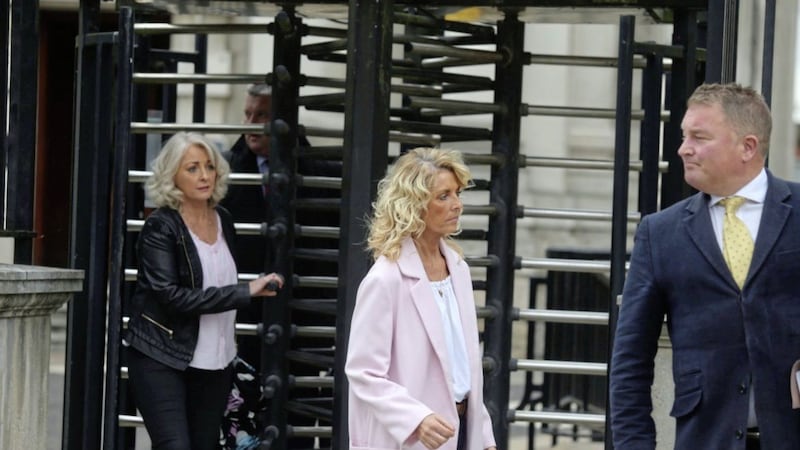THE use of one set of victims against another is a tactic that should shame any and all of those involved.
That does not just include those making political capital from others’ agony but also the authorities who have been tasked with, and failed, to put proper mechanisms in place or compensate fairly for loss suffered.
In all the years I have been doing this job and the hundreds of victims from all walks of life I have interviewed, I have rarely heard money or compensation mentioned.
Until this past few weeks, when the families of those who lost loved ones on Bloody Sunday finally started to reach settlements in the High Court. It has become a talking point.
Thirteen people were killed when members of the British army’s Parachute Regiment opened fire on civil rights marchers in Derry on January 1972. One man died later from his injuries. The Saville Inquiry, established in 1998 by British prime minister Tony Blair, finally published its findings on June 15 2010. The inquiry took so long that there were not only two changes of prime minister but also a change of administration. On the day the findings were published, David Cameron addressed the House of Commons and acknowledged that the paratroopers had fired the first shot, had fired on fleeing unarmed civilians, and shot and killed one man who was already wounded. He then apologised.
In 2011 the Ministry of Defence indicated it was preparing to settle compensation payments with the families.
So let’s do the maths on that. Twenty-six years campaigning for an inquiry, 38 years waiting on the findings and a formal apology, seven years since MoD accepted liability, 46 years in total of waiting for proper recognition of what were, in effect, state executions, in the form of a High Court settlement. Hardly an easy ride or special treatment but a perfect demonstration of all that is wrong with how the end of the Troubles was – and continues to be – dealt with.
The payouts to some families bereaved and people injured on Bloody Sunday show a disparity in how such cases are dealt with. The family of Gerard McKinney, a 35-year-old father-of-eight, who was shot dead at Abbey Park, were awarded £625,000. The family of Michael McDaid (20), who was killed near a barricade in Rossville Street, received £75,000.
The Bloody Sunday families are being paid a modern rate of compensation based on loss, made possible by the findings of Saville which are now cast in stone.
While no two cases are the same, it does highlight just how little value was placed on human life in the past.
Jim Allister said he would write to the prime minister in relation to the compensation, pointing out the small sums paid to RUC widows. Victims campaigner Andree Murphy said that athough Mr Allister “raises an important issue”, it “in no way undermines the entire legitimacy of the payments to Bloody Sunday victims” and “in no way endorses his partial approach to this sensitive and complex issue”.
I covered both their comments in an article carried in this paper last week.
The day it was published a gentleman rang me. He said his wife had died in an IRA bomb blast in the early 1970s, leaving him alone with seven young children.
After being dragged through the courts he was awarded only funeral costs as his wife was a stay-at-home mum and therefore her worth in law was diminished.
He said he was compensated for a car destroyed in the explosion. The vehicle had more worth in the eyes of the law than the mother of his children.
And so when this week four former secretaries of state say they have written to Karen Bradley asking that support for victims should be prioritised over funding any further historical investigations, let’s not jump so quickly to dismiss the suggestion.
The public consultation on the legacy of the Troubles is now closed. In the absence of an assembly it should fall to Westminster to legislate for the past.
Three former Labour secretaries of state, Lords Hain, Murphy and Reid, signed the letter, together with former Conservative secretary of state Lord King. I don’t think any of them left Northern Ireland cloaked in glory but at least they’ve been here and understand the complexities.
Millions spent to date on ad hoc investigations have only served to create resentment among those who feel they were overlooked in favour of others.
Instead of pitting victims against one another, proper recognition of loss – even at this late stage – will at least put a worth on a life that is just and appropriate, rather than allow people to go to their graves knowing the state thought a car more valuable than a mother of seven children.








